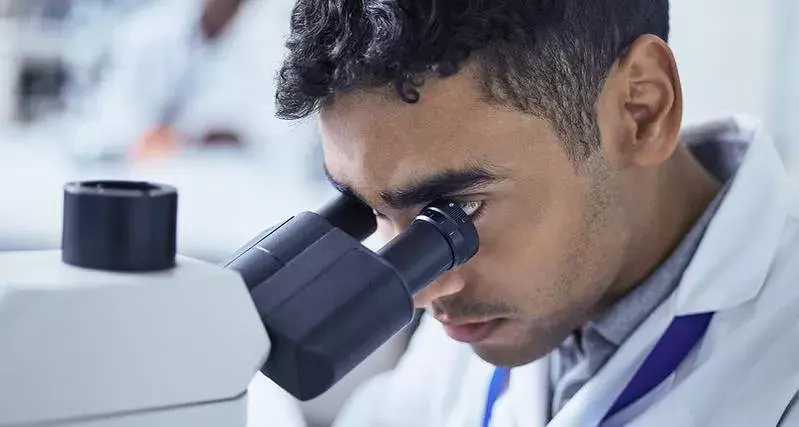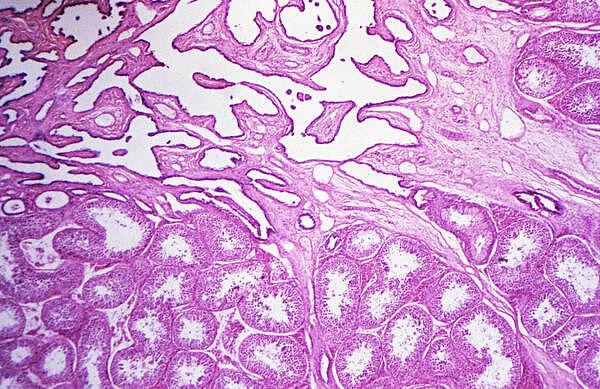 Pathology stands as a cornerstone of contemporary medicinal drugs, respected for its integral position in elucidating the elaborate mechanisms of disorder pathology. It serves as a sentinel, guarding the threshold between diagnostic precision and effective treatment strategies. This multifaceted field goes past surface observations, delving deep into the molecular intricacies of diseases, uncovering their origins, progression, and impact on the human frame. From knowledge of the underlying mobile aberrations to interpreting the complicated interaction of biochemical pathways, pathology presents a complete roadmap that helps clinicians in navigating the tremendous panorama of human fitness and infection.
Pathology stands as a cornerstone of contemporary medicinal drugs, respected for its integral position in elucidating the elaborate mechanisms of disorder pathology. It serves as a sentinel, guarding the threshold between diagnostic precision and effective treatment strategies. This multifaceted field goes past surface observations, delving deep into the molecular intricacies of diseases, uncovering their origins, progression, and impact on the human frame. From knowledge of the underlying mobile aberrations to interpreting the complicated interaction of biochemical pathways, pathology presents a complete roadmap that helps clinicians in navigating the tremendous panorama of human fitness and infection.
At the heart of pathology lies a cohort of exceptionally skilled professionals referred to as pathologists, whose know-how is honed through years of rigorous education and relentless pursuit of know-how. These devoted individuals own a unique combo of medical acumen, medical insight, and meticulous attention to detail. Equipped with modern-day laboratory techniques and modern diagnostic gear, pathologists embark on a journey into the microscopic realm, in which they carefully have a look at tissues, cells, and physical fluids to find the hidden secrets and techniques of disorder. Their findings function as the cornerstone of medical decision-making, offering clinicians valuable insights that form remedy modalities, prognostic assessments, and preventive techniques.
Furthermore, pathology serves as a crucible of innovation, driving advancements in diagnostic methodologies, therapeutic interventions, and personalized medication. As the era continues to conform and our information of ailment mechanisms deepens, pathology remains at the leading edge of medical discovery, pushing the limits of understanding and reworking the landscape of affected person care. By embracing challenges, fostering interdisciplinary collaboration, and harnessing the strength of scientific inquiry, pathologists pave the way for a destiny in which precision medicinal drugs and tailored remedies are the norm, no longer the exception.
 Role of Pathologists
Role of Pathologists
Pathologists occupy an imperative function within the healthcare panorama, wielding their specialized knowledge and know-how to navigate the tricky terrain of disease pathology. Beyond the conventional realm of prognosis, those adept experts function as linchpins in patient care, leveraging their skills to decode the complexities of various diseases. At the forefront of this enterprise is their pivotal position in providing accurate and insightful diagnoses, drawing upon a sizable array of diagnostic tools and methodologies.
Moreover, pathologists transcend the bounds of prognosis, actively accomplishing patient management via the translation of laboratory assessments, biopsies, and imaging research. Their keen insights and analytical acumen function as guiding beacons for clinicians, facilitating informed remedy decisions and personalized therapeutic interventions.
Beyond the confines of medical practice, pathologists additionally wield their expertise to propel clinical research forward, spearheading endeavors aimed at unraveling the mysteries of sickness mechanisms, exploring novel healing avenues, and advancing preventive techniques. Through their multifaceted contributions, pathologists stand as pillars of innovation, driving progress in diagnostics, therapeutics, and in the long run, the development of patient outcomes.
Common Pathological Techniques
Traditional histologist stains to contemporary molecular assays, those techniques serve as vital equipment inside the diagnostic arsenal of pathologists, allowing them to get to the bottom of the elaborate tapestry of cell and tissue abnormalities. This phase delves into the realm of commonplace pathological strategies, dropping light on their ideas, packages, and pivotal position in disorder diagnosis and control.
- Histopathology: This field entails the microscopic examination of tissue samples to discern structural and cellular abnormalities, helping within the diagnosis and type of diseases.
- Cytopathology: Focused on man or woman cells obtained from physical fluids or tissue samples, cytopathology is instrumental in diagnosing conditions which include most cancers.
- Immunohistochemistry: By utilizing antibodies to hit upon specific proteins in tissue samples, immunohistochemistry assists in ailment analysis and category.
- Molecular Pathology: This subject analyzes genetic and molecular changes in cells to recognize ailment mechanisms and tailor remedy techniques.
- Clinical Pathology: Composed of numerous laboratory checks, clinical pathology analyzes blood, urine, and different bodily fluids for diagnostic functions.
Applications of Pathology
Applications that extend some distance past sickness diagnosis alone. Pathologists play a crucial position in various elements of healthcare, starting from sickness detection and characterization to treatment selection, prognosis evaluation, or even disease prevention strategies. In this phase, we delve into the multifaceted programs of pathology across different scientific specialties and studies domain names, highlighting its essential contributions to advancing affected person care and expertise the complexities of human fitness and ailment.
- Disease Diagnosis and Classification: Pathological exam aids in figuring out the character and volume of illnesses, facilitating accurate analysis and type.
- Treatment Guidance: Pathological findings guide remedy choices via providing insights into ailment stage, subtype, and molecular characteristics.
- Prognostic Assessment: Pathological features can predict ailment results and guide prognostic evaluations, influencing patient management strategies.
- Screening and Prevention Programs: Pathology contributes to screening programs aimed toward early detection of diseases together with cancer, permitting timely interventions and preventive measures.
Advances in Pathology
Field of pathology has witnessed a fantastic surge in technological improvements, studies breakthroughs, and diagnostic skills, revolutionizing the way sicknesses are understood, recognized, and treated. This segment explores the modern-day advances in pathology, from novel diagnostic strategies and imaging modalities to groundbreaking discoveries in molecular pathology and artificial intelligence packages. With those improvements, pathologists are empowered with unprecedented gear and insights to navigate the complexities of human fitness and disorder, paving the way for more desirable patient care, customized treatment techniques, and progressed medical results.
- Digital Pathology: The digitalization of pathology slides enables far off access, image evaluation, and improved collaboration among pathologists.
- Artificial Intelligence in Diagnostics: AI algorithms assist in photograph analysis, pattern recognition, and decision help, improving diagnostic accuracy and efficiency.
- Personalized Medicine Approaches: Pathology plays a pivotal position in personalized medication through figuring out biomarkers and molecular objectives for centered therapies.
- Integration with Multidisciplinary Care: Pathologists collaborate with clinicians, radiologists, and other experts to offer complete affected person care and remedy making plans.
Challenges and Considerations
While pathology stands at the forefront of scientific diagnostics, it also grapples with a myriad of demanding situations and issues that warrant interest and careful consideration. This section sheds light at the hurdles encountered through pathologists in their day by day practice, starting from technical obstacles and diagnostic ambiguities to moral dilemmas and aid constraints. By dissecting those demanding situations and exploring capability answers, we gain a deeper know-how of the intricacies of pathology and underscore the significance of collaborative efforts in overcoming those barriers to develop the sphere and improve affected person care
- Quality Assurance: Upholding stringent pleasant requirements in pathology laboratories is imperative to ensure the accuracy and reliability of diagnostic results.
- Workforce Shortages: The escalating call for pathology services has led to shortages of pathologists and laboratory employees in sure regions, posing demanding situations to healthcare shipping.
- Technological Complexity: Keeping abreast of technological improvements in pathology necessitates non-stop schooling and funding in infrastructure and assets.
- Ethical and Legal Implications: Pathologists navigate moral dilemmas and criminal considerations related to affected person consent, privacy, and using genetic information.
In conclusion, pathology stands as a cornerstone of current remedy, offering fundamental contributions to disease analysis, treatment, and studies. Despite the demanding situations it faces, from diagnostic complexities to resource limitations, pathology stays resilient and adaptive, usually pushing the bounds of clinical knowledge and innovation. As we navigate the ever-evolving panorama of healthcare, it's imperative that we understand the pivotal position of pathology in shaping clinical selection-making and affected person outcomes.
Looking ahead, the destiny of pathology holds promise for groundbreaking improvements, fueled by using emerging technologies, interdisciplinary collaborations, and a deeper understanding of disease biology. By embracing those possibilities and addressing the challenges head-on, we are able to unencumbered new frontiers in pathology, using upgrades in diagnostic accuracy, therapeutic efficacy, and personalized medicinal drugs.
